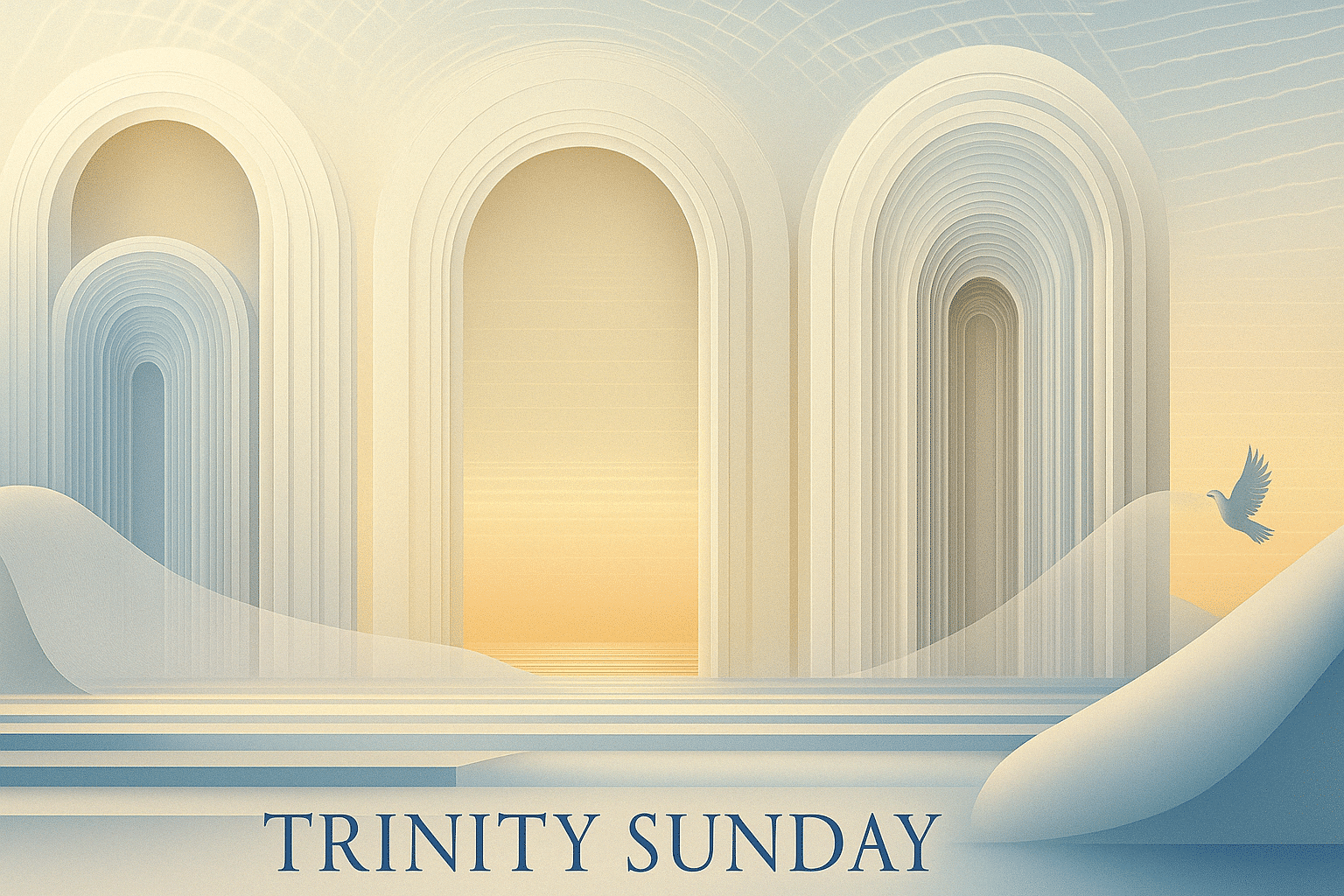What is Trinity Sunday?
Trinity Sunday is held every year on the first Sunday after Pentecost and is observed worldwide. The day focuses on one of the most central teachings in Christianity: the belief in one God who exists in three persons ; the Father, the Son, and the Holy Spirit.
The celebration highlights the mystery of divine unity in diversity. Churches around the world reflect on the relationship between the three persons of the Trinity. It is a day for worship, contemplation, and a deeper understanding of God’s nature.
In the Netherlands, Trinity Sunday is observed mainly in Catholic and Protestant communities. Services include special hymns, liturgy, and sermons that focus on the meaning of the Trinity within the Christian faith.
History and Origin
The doctrine of the Trinity has been a part of Christian theology since the early centuries of the Church. However, a separate feast dedicated to the Trinity only became widespread later in church history.
Trinity Sunday was officially established for the Western Church in the 14th century by Pope John XXII. The aim was to give formal attention to the doctrine and to counter confusion caused by theological disputes about the nature of God.
The feast falls one week after Pentecost. While Pentecost celebrates the coming of the Holy Spirit, Trinity Sunday marks the first Sunday in Ordinary Time in the liturgical calendar and shifts focus to the full nature of the Christian God.
Who participates in Trinity Sunday?
- Church congregations: Join together in worship to celebrate the unity of Father, Son, and Holy Spirit.
- Theologians and clergy: Deliver sermons and teachings on the doctrine of the Trinity.
- Choirs and musicians: Perform hymns and pieces that explore the mystery of God’s triune nature.
- Families: Reflect on faith traditions through readings, prayer, or discussion.
- Christian schools and study groups: Use the day as a teaching opportunity to explore theological questions.
Slogans and Themes
Trinity Sunday is shaped by themes of unity, holiness, and divine relationship. Common phrases include “One God in Three Persons,” “The Mystery of Faith,” and “Praise the Holy Trinity.” The day is about reverence for what cannot be fully explained but is central to Christian identity.
Colors, Symbols and Patterns
Colors
- White: Used in churches to symbolise purity and holiness.
- Gold: Represents divine majesty and glory.
- Light blue: Sometimes used to express serenity and spiritual truth.
Symbols
- Triangle: Stands for the three persons of the Trinity, joined in one.
- Interlocking circles: Reflect eternal unity without beginning or end.
- The triquetra: An ancient symbol showing the relationship between Father, Son, and Spirit.
Patterns
- Threefold designs: Used in liturgical art and architecture to reflect the triune structure.
- Celtic knots: Appear in church decorations to symbolise divine connection.
- Rays of light: Suggest spiritual illumination and divine presence.
Most used hashtags
- #TrinitySunday
- #HolyTrinity
- #ChristianFeast
- #FatherSonHolySpirit
- #ChristianWorship
How do you celebrate Trinity Sunday?
- Attend a service: Join a church gathering focused on worship and teaching about the Trinity.
- Read scripture: Explore passages from the New Testament that mention the Father, Son, and Holy Spirit.
- Sing hymns: Join in traditional or modern worship songs that honour the threefold nature of God.
- Study theology: Learn more about how the doctrine of the Trinity developed in Church history.
- Pray with focus: Use this day for silent prayer, thanksgiving, and reflection on divine mystery.
Why is Trinity Sunday important?
Trinity Sunday is important because it brings attention to a core aspect of Christian faith. It is a day that helps believers reflect not only on what God is but on how God relates ; both within the Trinity and with humanity.
The feast invites Christians into deeper worship and understanding. By focusing on the unity of Father, Son, and Spirit, the day strengthens both personal faith and collective identity across denominations.
Features
- Religious
